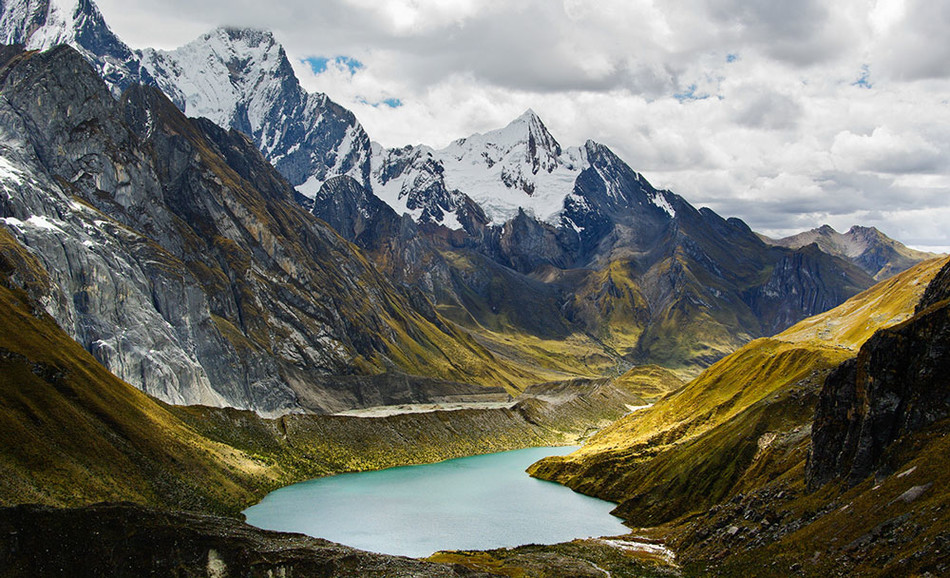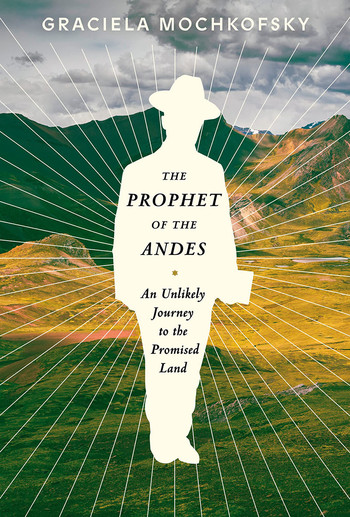The Prophet of the Andes is nominally a biography, although its subject is larger and more elusive than a single man. Through the sweeping story of Zerubbabel Tzidkiya, a Jewish convert born Segundo Villanueva in the mountains of Peru, Graciela Mochkofsky ’96JRN probes one of the deepest questions of human existence: whom should we trust to teach us how to live?
Her titular prophet begins life as a good Catholic in the foothills of the Andes, in a place where there is no horizon, just “mountain and more mountain,” engulfed in clouds. Villanueva, a carpenter, is Catholic because five centuries earlier, Spanish conquistadors garroted the Inca emperor Atahualpa in the walled city of Cajamarca, six hours’ walk away. They spread their dogma at the point of a sword and guarded its mysteries by preaching in Latin.
In 1944, when Villanueva is seventeen, his father is murdered by a drunk neighbor. Amid his vengeful rage, the young man unearths a forbidden Spanish-language Bible in his father’s trunk and starts — defiantly, heretically — to read and to question. So begins a remarkable odyssey of faith — and, on the part of the book’s author, of research, conducted over more than fifteen years. It is distilled here, with the help of translator Lisa Dillman, with luminous clarity and flashes of wit that remind us that the search for God is a deeply human story.
Villanueva first turns to the Protestants, whose faith was born of the determination to read and teach the Bible in the vernacular. But the Methodists, Presbyterians, Pentecostals, and the rest he seeks out are mostly unwilling to discuss his disruptive ideas — a pattern that will repeat to the end of his life. Eventually, he leads twenty-odd families to hack their own colony of faith out of an inhospitable patch of jungle. They call it Hebron, and last there for several years before the conditions prove too harsh. Still, Villanueva has questions nobody can answer, about how to reconcile the mixed messages of the Old and New Testaments and the variations between Bible translations, about why Christians do not observe all the biblical holy days, and most of all about the status of Jesus — as messiah or mere messenger. He needs the original text. He needs Hebrew, or someone who reads it. He needs, he finally realizes, “Of course. The Jews!”
But the Jewish colony in Lima in the late 1960s proves to be a socially elite, assimilated enclave, unwilling to admit these self-taught, tiresomely curious “cholos.” Villanueva makes do with a book of Jewish tradition aimed at students preparing for their bar mitzvahs, and back in Hebron he convinces several of his followers to join him in conversion and aliyah — emigration to the Holy Land.
Spiritual matters can never be untangled from political ones, but especially not in Israel in the 1990s and 2000s. When the first Peruvian converts arrive in Israel, they are shuttled under armed escort to settlements in the West Bank. Amid mounting violence, they take refuge in faith, and most take the hard-line view that the settlements are a legitimate expansion of the country’s God-given borders. On arrival in 1990, Segundo Villanueva — now Zerubbabel Tzidkiya — is in his sixties and eligible for a state pension, but he does not rest. Continuing to probe ideas that most Orthodox Jews consider long-settled, he eventually comes to doubt the authority of rabbis, or any human, to interpret the word of God. By the time he dies in 2008 at the age of eighty, he has become a pariah even in his long-dreamed-of spiritual home.
Mochkofsky, a writer and professor who was recently named the dean of CUNY’s journalism school, grew up in Argentina, the daughter of a secular Jewish father and a Catholic mother. In 2003, she stumbled across a highly colored version of Villanueva’s story written by an American rabbi who had visited his followers in Peru and set out to unravel the truth of the twisting tale. In Mochkofsky’s telling, Villanueva is an unlikely “prophet,” who offers his followers endless doubt in place of certainty. Yet it’s striking that all the faiths he followed and founded were extremely conservative. Despite his openness to new ideas, and the context of massive social change across the globe during his lifetime, Villanueva seems never to have ventured beyond the traditional patriarchal values of his upbringing. One is left to wonder why a man whose religious life was defined by curiosity never found a way to question the world around him as deeply as he questioned the words in the Bible — and what might have happened if he had.




